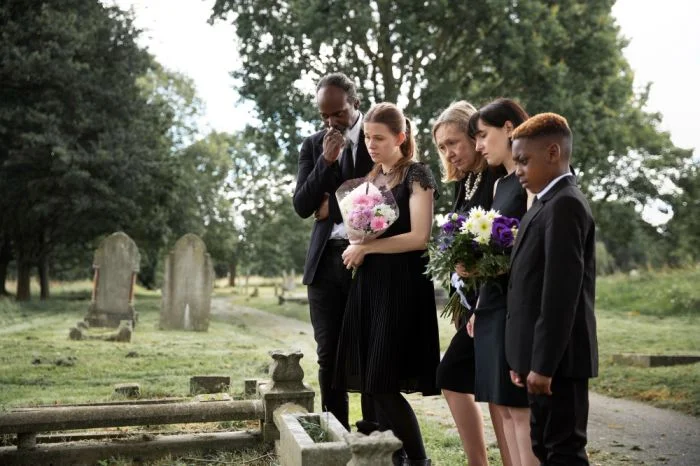Have you ever stood in front of someone who has just lost a loved one and felt utterly helpless—unsure whether to speak, stay silent, or simply disappear?
Most of us have. And if you’re anything like me, that moment lingers in your memory far longer than you’d expect. I remember sitting at a friend’s kitchen table after she had lost her brother in a sudden accident. The kettle boiled behind us, untouched. She looked at me and whispered, “Everyone keeps telling me to ‘stay strong’. I don’t want to be strong. I want him back.” In that moment, I realised how inadequate our common phrases around grief can be—and how deeply people crave honesty, presence, and humanity.
This article draws from both personal encounters with grief and conversations with bereavement counsellors, psychologists, and clergy members who support the grieving every day. It is rooted in evidence-based recommendations, real-world examples, and practical phrases you can use to offer genuine comfort. If you’ve ever wondered what to say—or what not to say—when someone dies, you’re in the right place.
Why What You Say Matters More Than You Think
Grief affects memory, sleep, decision-making, and even the immune system. Researchers at the University of Pittsburgh found that people experiencing acute grief often display physiological symptoms similar to post-traumatic stress (Schumer et al., 2022). At such times, even a single sentence can either soothe or intensify emotional pain.
According to Dr. Julia Samuel, a renowned British psychotherapist and author of Grief Works, “People do not need you to fix their grief. They need you to witness it.” Her insight is echoed in almost every bereavement support guideline from organisations such as Cruse Bereavement Support in the UK.
So the question is not just what to say, but how to say it—with presence, warmth, and sincerity.
The Golden Rule: Authenticity Over Perfection
Before diving into examples, one truth must be said plainly: there is no perfect sentence that erases loss. Your goal is not to repair the wound but to show that you care.
When words fail (and they often will), your tone, expression, and willingness to listen communicate more than any rehearsed line.
What to Say When Someone Dies: Thoughtful, Real Phrases That Comfort
Below are phrases grounded in real-life interactions and recommended by grief counsellors. They avoid clichés, minimise emotional burden, and open space for the bereaved to share.
1. “I’m so sorry—this must be incredibly hard for you.”
This phrase acknowledges the difficulty without pretending to understand the depth of their pain.
Why it works: It validates feelings and allows the grieving person to respond without pressure.
Real example: Bereavement volunteer Sarah M., who has supported dozens of families through Cruse, notes that “the simplest acknowledgement often brings the first real sense of ‘being seen’ amid the chaos of grief.”
2. “I don’t have the right words, but I’m here for you—truly.”
People fear saying the wrong thing; admitting this fear is often an honest and deeply comforting approach.
Expert perspective: Counselling psychologist Dr. Tanya Byron highlights that authenticity creates emotional safety and encourages openness.
3. Share a meaningful memory (if appropriate)
Instead of generic praise (“He was such a good man”), offer something specific.
Example: “I still remember the way your mother laughed in the garden that afternoon during last year’s barbecue. She made everyone around her feel welcome.”
Evidence-backed note: Research from the American Psychological Association shows that remembering shared experiences supports healthy mourning by reinforcing social connection.
4. “Would it help to talk about them? I’d love to listen.”
This gives permission without demanding conversation.
Why it matters: Many people avoid mentioning the deceased out of fear it will upset the mourner. However, most bereaved individuals report relief when someone honours their loved one’s memory.
5. “Take your time with everything—you don’t need to rush anything right now.”
Grief disrupts cognitive clarity. Practical reassurance helps reduce unnecessary pressure.
6. If you knew the person well: “Your father meant so much to me. I will miss him deeply.”
If you didn’t know them: “I didn’t have the chance to know her well, but I know how much she meant to you.”
Both versions offer respect while maintaining honesty.
What Not to Say (and Why)
“They’re in a better place now.”
This assumes a belief system the person may not share and can feel dismissive of their pain.
“At least they lived a long life.”
Grief is not measured in years.
“Everything happens for a reason.”
Many grieving people find this phrase infuriating because it attempts to rationalise the irrational.
“Be strong.”
This inadvertently tells them to suppress their emotions. Bereavement experts warn that avoided grief can re-emerge as long-term distress.
“I know how you feel.”
You don’t. You can empathise, but every loss is personal.
Instead: “I can’t imagine what you’re feeling, but I care deeply about you.”
The Power of Being Present (Even Without Words)
A 2021 study published in The Journal of Social and Personal Relationships found that emotional presence has a stronger impact on healing than verbal support alone. Sometimes the best comfort is silent companionship.
Examples of presence that matter:
- Making a cup of tea and sitting quietly beside the person.
- Helping with small tasks like answering the door or putting on a wash.
- Simply listening as they cry, reminisce, or sit in silence.
As grief counsellor Megan Devine said in an interview with The Guardian, “Your job is to acknowledge the reality of their grief—not to tidy it up.”
Understanding How People Grieve (And Why Your Response Should Adapt)
Every individual grieves differently. Some talk endlessly; others withdraw. Your approach should respect their emotional style.
1. The Talker
They need to speak, repeat stories, express anger or disbelief.
What helps: reflective listening.
2. The Silent Griever
They may not want conversation, only company.
What helps: quiet presence and practical support.
3. The Organiser
They plunge into funeral arrangements or paperwork as a coping mechanism.
What helps: offering to handle smaller logistical tasks.
4. The Emotional Processor
They oscillate between crying, laughing, and numbness.
What helps: reassurance that grief is not linear.
Evidence: The Dual Process Model of Coping with Bereavement (Stroebe & Schut, 1999) explains that people fluctuate between loss-oriented and restoration-oriented states.
No response fits everyone—adaptation shows empathy.
What to Say in Specific Situations
When someone loses a parent
“Your father shaped so much of the kindness I see in you. I’m holding you in my thoughts today.”
When someone loses a partner
“I can only imagine how much you miss him. The love you both shared was evident to everyone around you.”
When someone loses a child
Avoid platitudes entirely. You might say:
“I am devastated for you. I don’t have words, but I am here in whatever way you need—now and in the months ahead.”
After a suicide
“I’m so sorry. This loss is unimaginable. You’re not alone, and I’m here to support you without judgement.”
When you didn’t know the deceased
“I was truly sorry to hear of your loss. Although I didn’t know your sister, I know how deeply you cared for her, and I’m holding you in my thoughts.”
Real Expert Insights to Guide Your Words
1. Grief counsellors emphasise specificity
According to Cruse Bereavement Support, specific help is better than vague offers.
Instead of: “Let me know if you need anything.”
Try: “I’m going to the supermarket this afternoon—can I bring you milk, bread, or anything else?”
2. Psychologists highlight the importance of normalising emotional swings
Dr. Katherine Shear of Columbia University notes that “grief is a natural response to loss, not a disorder.” Your words should reflect this reality.
3. Clergy members remind us that ritual is part of healing
Reverend Simon Foster of the Church of England shared that people often appreciate hearing:
“I will light a candle for your mother this evening and think of her.”
Even if you are not religious, gestures of remembrance are meaningful.
Practical, Actionable Ways to Support Someone Through Words
1. Use their loved one’s name
It humanises the loss.
2. Speak slowly and gently
The bereaved may be overwhelmed and easily startled.
3. Ask open-ended questions
- “What was she like as a mother?”
- “What’s helping you cope today?”
4. Follow up—consistently
Grief lasts months and years, not days.
Sending a message weeks later such as:
“Thinking of you today. How have you been managing lately?”
is incredibly powerful.
5. Avoid unsolicited advice
Unless they ask, resist commenting on how to “move on” or “heal faster.” Healing is not a race.
FAQs:
What should I say immediately after someone tells me a loved one has died?
Acknowledge the loss: “I’m so sorry to hear this. Thank you for telling me. I’m here for you.”
Is it okay to mention the deceased’s name?
Yes. Studies show this can bring comfort and reduce feelings of isolation.
What if I say the wrong thing?
Apologise briefly and refocus on care: “I didn’t mean to sound insensitive. I care about you, and I’m here to listen.”
How can I support someone from afar?
Regular messages, video calls, sending meals, or arranging small practical support makes a difference.
Should I bring up religion or spirituality?
Only if you are certain it aligns with their beliefs.
Final Thoughts: Your Words Can Be a Lifeline
Learning what to say when someone dies is not about memorising perfect sentences—it is about becoming a compassionate presence in someone’s darkest hours. Your sincerity matters more than your eloquence.
Next time you face a grieving friend, neighbour, colleague, or family member, try pausing before speaking. Ask yourself: What would I want to hear if I were in their place? Then speak from that place of humanity.
If you feel comfortable doing so, I’d welcome hearing your experiences. Have you ever struggled to find the right words after a loss? How did you navigate it? Your reflections may help someone else who is searching for guidance.
Read Also: Best Things to Say to Someone with a Sick Family Member





Fantastic website. Plenty of helpful information here. I’m sending it to several buddies ans additionally sharing in delicious. And obviously, thank you to your effort!
I haven¦t checked in here for some time because I thought it was getting boring, but the last few posts are great quality so I guess I will add you back to my everyday bloglist. You deserve it my friend 🙂